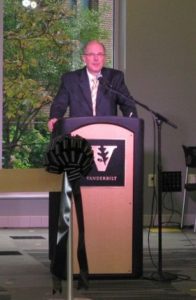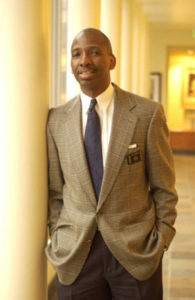In response to a growing demand for cultural competence training and support for students with diverse backgrounds, the Dean of Students (DOS) Office has reorganized its resources and offices to include a new functional area called Social Justice and Identity (SJAI). This area will replace what used to be the office of Inclusion Initiatives and Cultural Competence (IICC).
Social Justice and Identity will include all of the same offices that IICC did, and IICC will turn into a department in the new area which will coordinate cultural competence training across campus. Transitions Programs, which is aimed at supporting first-generation and transfer students, will also be added to the new area.
“We thought that this was the best configuration of our resources to support diversity and inclusion on our campus,” Dean of Students Dean Bandas said. “Clearly, diversity and inclusion are issues that cut through the entire division, but these are offices that are designed to provide support for students with diverse backgrounds, they are designed to advocate for those students and for issues of social justice on campus.”
The Bishop Joseph Johnson Black Cultural Center’s (BCC) director, Frank Dobson, will become the Associate Dean of the new SJAI area. While the DOS Office conducts a search for a new BCC director, Dobson will serve in both roles with the the assistance of a new assistant director of the BCC, Nicole Malveaux.
“My new position has really helped solidify relationships that I have already had with these people as a colleague,” Dobson said. “Now I think as Associate Dean I would like to think that it’s not them working for me, it’s me working for them. How can I serve as an advocate? How can I help make sure that you have the resources you need? How can I make sure that we maximize your impact on this campus? And I think with the reorganization, for me, it’s about a challenge to make Vanderbilt even better.”
The DOS Office is expanding staff in the new SJAI area by nearly two-thirds, according to Dean Bandas. The Office of LGBTQI Life and to the Women’s Center are in the process of hiring new program coordinators, who will likely start mid-year. Program coordinators advise student organizations andsupport students.
“One of the issues that we are trying to address is the intersectionality of the various dimensions of multiculturalism.”
-Dean of students mark Bandas
The Office of Religious Life will also hire a new assistant chaplain, who will work to support the religious and spiritual needs of black students on campus. Greek Life will also hire an assistant director in response to the faculty senate’s Greek Life Task Force findings, which recommended that additional staff be hired to support students on Greek row.
DOS also hopes to create a fourth Greek life council, called the Multicultural Council, in the spring that will include multicultural groups.
“There are four or five groups right now who don’t have a natural council home,” Bandas said.
Student access to the groups in the Social Justice and Identity cluster will remain the same. However, reconfiguring the offices better allows the DOS Office to address the intersectional needs of students of diverse backgrounds on campus.
“It’s a strategic reconfiguration,” Bandas said. “One of the issues that we are trying to address is the intersectionality of the various dimensions of multiculturalism. There is overlap in the needs of the constituencies of these departments, and some of this is multidimensional.”
Dobson pointed out that the change of the name was also an intentional decision that repurposes the office’s main focuses and goals.
“I think the difference is really in the branding,” Dobson said. “And by that I mean the acknowledgement that one of the things that these offices do is work toward issues of social justice. One of the goals of these offices, implicit in the work that they do, is for our students to become better citizens who understand social justice issues and therefore once they leave Vanderbilt, by working with the KCPC, or the BCC, or International Student Services, they will be better able to grapple with issues of social justice not only on our campus but once they leave our campus.”
the difference is really in the branding,” Dobson said. “And by that I mean the acknowledgement that one of the things that these offices do is work toward issues of social justice. One of the goals of these offices, implicit in the work that they do, is for our students to become better citizens who understand social justice issues and therefore once they leave Vanderbilt, by working with the KCPC, or the BCC, or International Student Services, they will be better able to grapple with issues of social justice not only on our campus but once they leave our campus.”
In his new position, Dobson hopes to target students who have not interacted with the offices in this area before.
“I would like to believe that we are going to reach students we have never reached on campus,” Dobson said.
As a part of this goal, the Social Justice and Identity cluster has spent more money and put more effort than ever before into Diverse Dores Day, an event in which all of the offices under Social Justice and Identity, plus a few others, have open houses for students.
“It’s one of those initiatives where we reach the students who may not come to campus and say I want to walk into the Black Cultural Center. But because of Diverse Dores Day, we are incentivizing the students going ot each of these offices and spending some time and seeing how these offices can help them become better global citizens and increase their awareness of issues.”
Overall, Bandas emphasized that this reorganization was made to provide the infrastructure and support for the growing demand for diversity and inclusion initiatives on campus.
“This reorganization shows that the university has made diversity and inclusion one of its top priorities and that these efforts are going to continue for years to come,” Bandas said.
